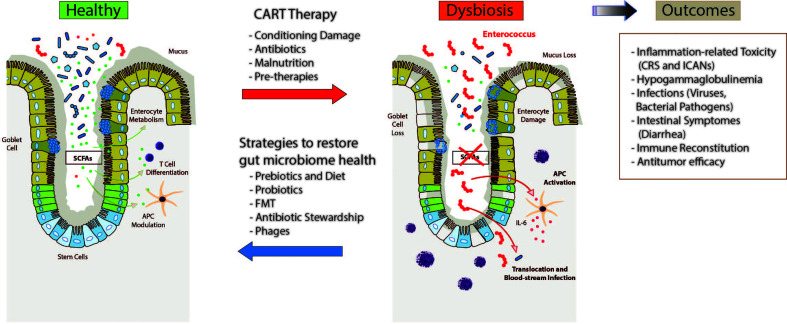Figure 2.
Intestinal microbiome dysbiosis and potential associations with patient outcomes following therapy with chimeric antigen receptor (CAR)-T cells (CART). Patients receiving CARTs are exposed to various environmental conditions including cytotoxic conditioning regimens, antibiotics, and dietary changes or malnutrition that might contribute to changes in the intestinal microbiome. In addition, previous therapies including chemotherapy, stem cell transplantation or even surgeries can affect microbiome homeostasis. These injuries to the intestinal microbiome, in turn, are hypothesized to affect clinical outcome and toxicity to CART treatment, including cytokine release syndrome (CRS), immune effector cell-associated neurotoxicity syndrome (ICANs), infections, gastrointestinal adverse events, immune reconstitution, and relapse through various different immunological mechanisms involving different hematopoietic and non-hematopoietic cell populations. Several strategies have been proposed, although not specifically for CAR-T cell immunotherapy, to restore the intestinal microbiome health which comprise pre- and probiotics, fecal microbiome transfer (FMT), de-escalated antibiotic exposures or even phage-based therapies to mitigate expansion of potential pathobionts.

